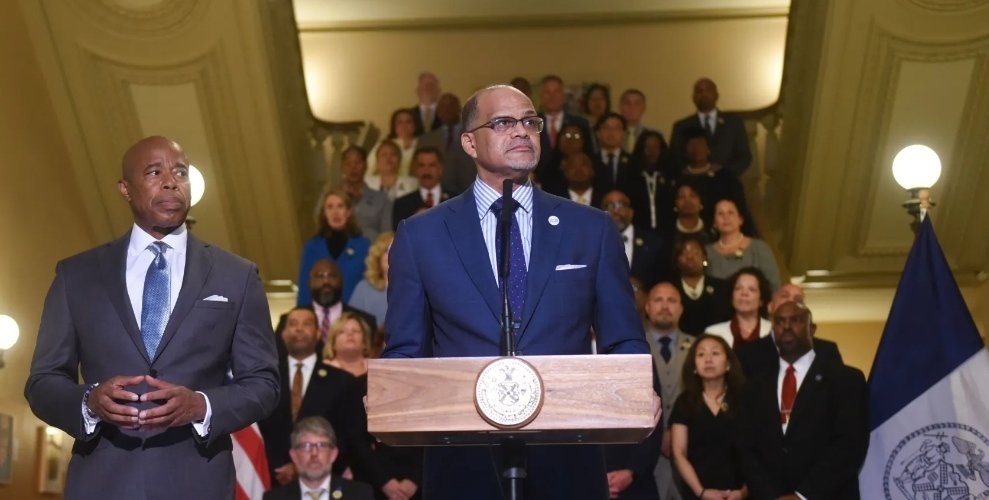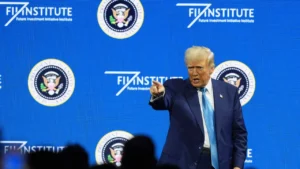Cuts to NYC disabled students’ private school payments to be approved by Chancellor Banks

Chancellor David Banks has indicated a move to slash hundreds of millions worth of tuition payments for students with disabilities.
“All this money that is meant for the kids in our public schools are going to private schools,” Banks said during a regularly scheduled meeting of his parent advisory council. “Folks have figured out how to game this system.”
If that money were plowed into traditional public schools, “We wouldn’t be having this fight about budget cuts,” Banks said. “We’d be able to pay for all that after-school programming, all of those kinds of things. This is money that’s going out the back door every single day.”
Banks’ comments struck a nerve with some parents and advocates who argue the growing cost of private school tuition payments is due to the city’s inability to provide adequate options for students with disabilities rather than an effort to take advantage of the city. Under federal law, families have the right to seek private placements if the city isn’t able to provide a free and appropriate education in a public setting.
“It sounds a little bit like shifting the blame to the families, but the reality is there isn’t somewhere in the public school system for many of those families to turn,” said Maggie Moroff, a disability policy expert at Advocates for Children, which offers free legal help to families seeking private placements.
Several hours after Banks’ comments, education department spokesperson Nicole Brownstein wrote, “We know that families want to do what is best for their children, and all children are entitled to attend a school that best meets their needs and allows them to reach their highest potential.”
Private school tuition payments have long been a contentious policy issue in New York City. Many families and advocates say they are a lifeline for students who would otherwise languish in public school settings, ranging from those with relatively common reading challenges like dyslexia to those with more serious intellectual delays.
But securing the tuition payments often requires significant time and resources, creating barriers for low-income families. Some argue the money could be better spent creating quality programs that are more accessible within the public system.







